A tough read, but a must-read
A life update, and my thoughts on Paul Lynch's extraordinary Booker Prize-winning novel, 'Prophet Song'
It’s been a little while since my last newsletter, and I’ve noticed an influx of subscribers in the meantime, so I’d like to start with a hearty welcome to all the lovely newcomers!
‘Thursdays After Lunch’ is a newsletter for readers, writers & story-lovers. I’m Joanna Morrison, a writer based in Western Australia. My short stories have appeared in various Australian journals and anthologies over the years, while my debut novel The Ghost of Gracie Flynn was shortlisted for the Hungerford Award in 2020 and published by Fremantle Press in 2022.
If you want to know more, hop over to my Linktree page, where you’ll find links to my website and my Instagram page, as well as interviews, reviews, and ways to buy my book. Thanks for joining me!
I’m eager to write about my latest read, Paul Lynch’s Prophet Song, which won last year’s Booker Prize. I read it with my book club this month and it provoked one of our most in-depth and emotional discussions to date. It’s a powerful, heartbreaking book that feels very timely, given the global political climate, and there’s lots to talk about, so stick around for that.
First though, since this is a newsletter, I’d better serve up a bit of what passes for news around here. As usual, I’ve been reading and writing as much as possible and enjoying time with my family. (I’ve also been having some fascinating dreams involving finely woven textiles, but any attempt at explaining those would never do them justice, so I might just have to keep those little pieces of magic to myself.)
Writing
After spending a couple of months revising a manuscript, I took two weeks off to enjoy the school holidays with my teens. Now that they’re back at school, I’m gathering myself together to complete a short story and tackle a second draft of another novel-in-progress.
This sounds as if I’ve been fairly productive, but somehow it doesn’t feel that way. Partly because time away from my desk over the holidays leaves me feeling disconnected from my work—no surprise there—and partly because my brain has been scrambled by appointment-fatigue (optometrist, vet, shoulder guy, shoulder scans, dentist, physiotherapist … the list goes on). I’m not complaining. I’m filled with admiration and gratitude for the medical people I’ve been pestering lately. But the logistics and costs are not to be sneezed at. Anyway, since apparently walking and exercising regularly is not enough to prevent writer’s back/shoulder/wrists, I’ve now invested in a ‘deskalator’, allowing me to stand and write instead of sitting down the whole time. Of all the things I imagined when I dreamed of being a writer one day, I never once pictured this set-up, or the toll writing might take on my body. (Should I be taking out insurance on it, like the prize-fighter I am? Food for thought.)
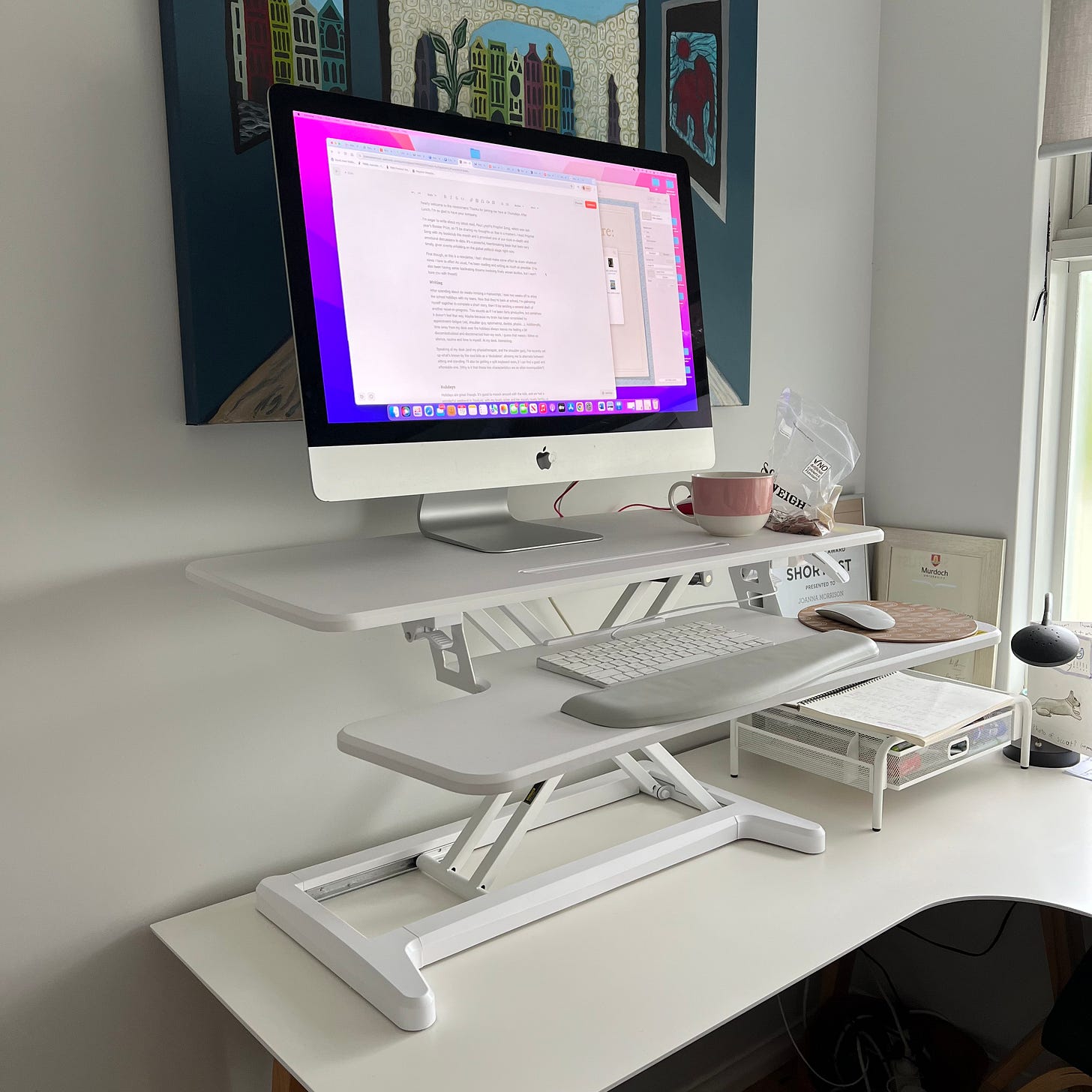
Holidays
Despite their fracturing effect on my focus, holidays are great. It’s good to mooch around with the kids, and this time around we had a wonderful weekend in Toodyay with my lovely sister and her equally lovely family. Toodyay is a small town in Western Australia, less than two hours from Perth, full of heritage buildings, and surrounded by gorgeous trees and hills. We enjoyed some good meals and laughs, and the kids loved exploring on their bikes and relaxing around the campfire. A beautiful weekend away.

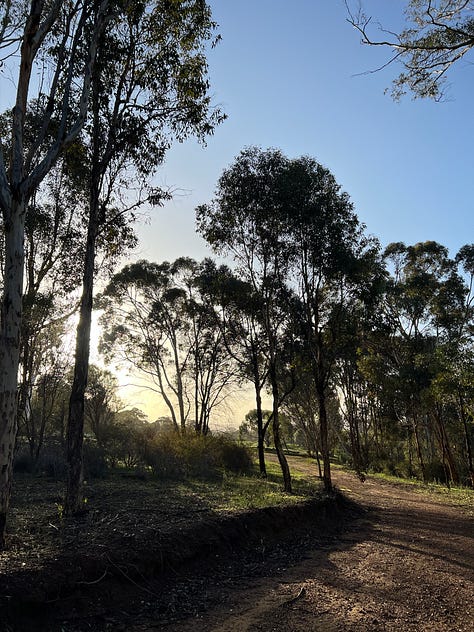
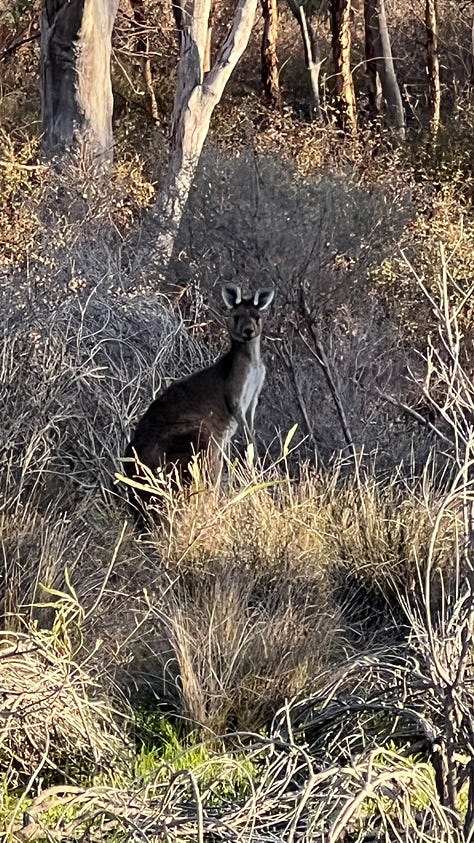
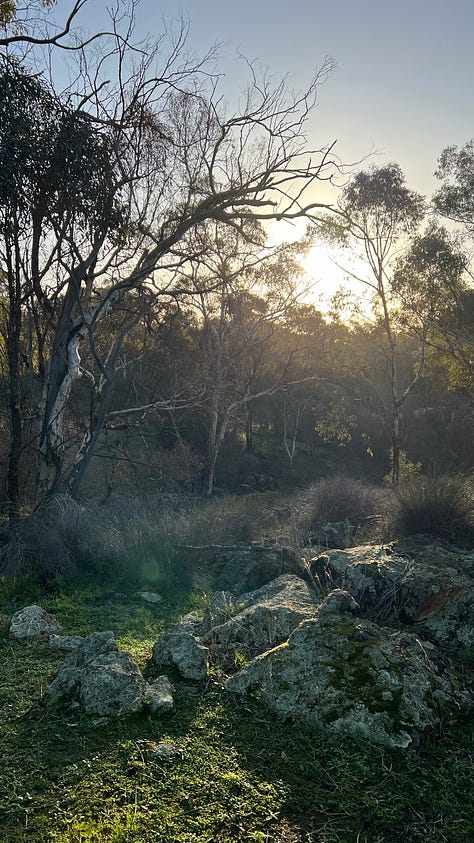


Workshop Preparations
I’ve been busy preparing for the Creative Writing workshop I mentioned in my previous newsletter, which I’m running at Melville’s AH Bracks Library in Perth in September. I taught a range of undergrad Creative Writing workshops at Murdoch University for a around ten years, during and after my PhD, so I’m really looking forward to putting my teaching hat back on and hanging out with writers keen to dive deeper into the writing craft with me.
Design & Refine: A creative writing workshop focusing on narrative tension, self-editing and publishing pathways.

Once I’ve delivered the workshop, I’m considering developing it into an online resource. I still need to work through the logistics of how to make it happen, but what do you think? Is this something you’ve done yourself? Would you recommend it? Or would you be interested in accessing the workshop online yourself? Please let me know.
Reading
And now on to this brilliant book: Paul Lynch’s Prophet Song.
The blurb:
On a dark, wet evening in Dublin, scientist and mother-of-four Eilish Stack answers her front door to find the GNSB on her step. Two officers from Ireland’s newly formed secret police are here to interrogate her husband, a trade unionist.
Ireland is falling apart. The country is in the grip of a government turning towards tyranny and when her husband disappears, Eilish finds herself caught within the nightmare logic of a society that is quickly unravelling.
How far will she go to save her family? And what – or who – is she willing to leave behind?
Exhilarating, terrifying and propulsive, Prophet Song is a work of breathtaking originality, offering a devastating vision of a country at war and a deeply human portrait of a mother’s fight to hold her family together.
Plot
Before Dublin descends into the dystopic nightmare described in the blurb, Eilish Stack is already juggling a lot. She’s a working scientist with four children, whose ages range from infancy to sixteen years of age. Her unionist husband is exhausted and her father is sliding towards dementia, struggling to maintain his independence in another part of the city. The resulting web of logistics and commitments and trips to the supermarket means that Eilish is deeply enmeshed in her life and her idea of home, despite the fact that it increasingly resembles a construct not worth sticking around for. The thought of uprooting everyone and evacuating seems too difficult to execute. Also, surely things can’t get that bad. Surely everything will settle down soon.
When Eilish learns that her sixteen-year-old son will soon be conscripted to serve in the armed forces, she is shaken. At his age, he should be playing football on the weekend and thinking about his future studies. As bombers loom overhead and soldiers begin setting up military blockades to separate one suburb from another, Eilish can’t help noticing how badly her kitchen needs scrubbing. Similarly, her dad worries about the ivy from the neighbour’s yard strangling his plants when he should be facing his increasing vulnerability. His advancing dementia is made more poignant by the fact that at the outset of the book, he is one of the first to warn Eilish that their country is hurtling towards fascism.
I don’t want to say much more about the plot, for fear of spoiling the read for you. All I will say is that Prophet Song’s lens of domesticity plays a major part in its power. The world Lynch creates is painfully recognisable, rendering the terrible events that unfold that much more devastating.
Style
Lynch does something bold with grammar in Prophet Song. Sentences run together in defiance of full stops, disrupting the smooth order of things. These run-on sentences are dreamlike at times, and their informality makes them feel deeply internal and unguarded, as if you’re inside Eilish’s consciousness (even though the stream of thoughts is delivered in close third-person). In addition, paragraph breaks only occur at scene changes, creating an uneasy sense of relentlessness. By disrupting the ‘rules’ in this way, Lynch creates a feeling of disorientation and unfamiliarity, which draws the reader deeper into Eilish’s experience of an increasingly alien and unnavigable world. By making the grammar so unfamiliar, Lynch makes you work while holding you in the grip of a discordant world.
I love how Ron Charles puts it in this Washington Post review:
[Prophet Song] is written in the grammar of dread. The sentences cascade from one to the next without so much as a moment’s breath. And with no paragraph breaks to cling to, every page feels as slippery as the damp walls of a torture chamber.
This novel is full of incredible sentences, starting with the very first one:
‘The night has come and she has not heard the knocking.’
The line is lyrical and filled with portent, a masterclass in nailing your opening line. Not only is it literally what’s happening—the story opens with the Garda knocking on Eilish’s door, wanting to see her husband, and she doesn’t hear it at first—but it’s also figuratively true of Eilish throughout the novel. Determined to maintain normality while waiting for her vanished husband to return, she remains wilfully deaf to the ‘knocking’: the warning signs, the red flags, the increasingly obvious risk she’s putting her children under by valiantly trying to keep them in school, or hoping to bunker down with them until things blow over.
There was a sentence near the beginning of the book that made me realise I was in for a powerful experience, despite the challenging style:
‘The darkening garden not to be wished upon now, for something of that darkness has come into the house.’
Often, Lynch’s run-on sentences take you swiftly from one intense moment or realisation into another without a moment’s pause to orient yourself or process what’s just happened. The effect is anxiety-inducing in places, uplifting in others. In this example, Eilish’s profound train of thought is seamlessly intruded upon by her awareness of two of her children:
“ … the end of the world is always a local event, it comes to your country and visits your town and knocks on the door of your house and becomes to others but some distant warning, a brief report on the news, an echo of events that has passed into folklore, Ben’s laughter behind her and she turns and sees Molly tickling him on her lap and she watches her son and sees in his eyes a radiant intensity that speaks of the world before the fall …”
At times, I felt as if I couldn’t absorb all the richness in the lines of Prophet Song without stopping, rereading, and rereading again. And there is tension in that too. In being, as a reader, caught between the pull of a propulsive narrative and the need to pause, to absorb a moment, an insight, an observation.
Resonance
A novel about a country sleepwalking into a fascist dictatorships is certainly timely, though as Eilish articulates (in a in a passage from which the title is surely drawn), this is not a new phenomenon:
… it is vanity to think the world will end during your lifetime in some sudden event, that what ends is your life and only your life, that what is sung by the prophets is but the same song sung across time, the coming of the sword, the world devoured by fire … and the prophet sings not of the end of the world but of what has been done and what will be done and what is being done to some but not others, that the world is always ending over and over again in one place but not another …
Or as Lynch says in this Guardian article by Ella Creamer:
I didn’t write this book to specifically say ‘here’s a warning’, I wrote the book to articulate the message that the things that are happening in this book are occurring timelessly throughout the ages, and maybe we need to deepen our own responses to that kind of idea.
This gut-punch of a novel highlights how thin the membrane can be between order and chaos. Between ordinary routine and sudden bereavement. The novel’s losses and betrayals are that much more disturbing for being perpetrated by a democratically elected government, systematically erasing the rights of its people.
Prophet Song is a novel of powerlessness and agency, of hopelessness and hope. It’s astonishing, heartbreaking and paralysing, and it beds down in your mind, as if it’s happening to you. Every moment is plausible and therefore disturbing, and at least part of its power comes from the dissociative chaos embedded in the syntax, and from the realness of Eilish as a character.
It’s a tough read but it’s a must-read.
Until next time,
Thanks for reading ‘Thursdays After Lunch with Joanna Morrison’! Subscribe free of charge to receive new posts and support my work.
My name is Joanna Morrison. My debut novel is ‘The Ghost of Gracie Flynn’, in which three university friends are divided by a tragic death. Eighteen years on, they’re reunited, but when another body is found, the ghost of Gracie Flynn has a story to tell about the night that changed their lives forever.




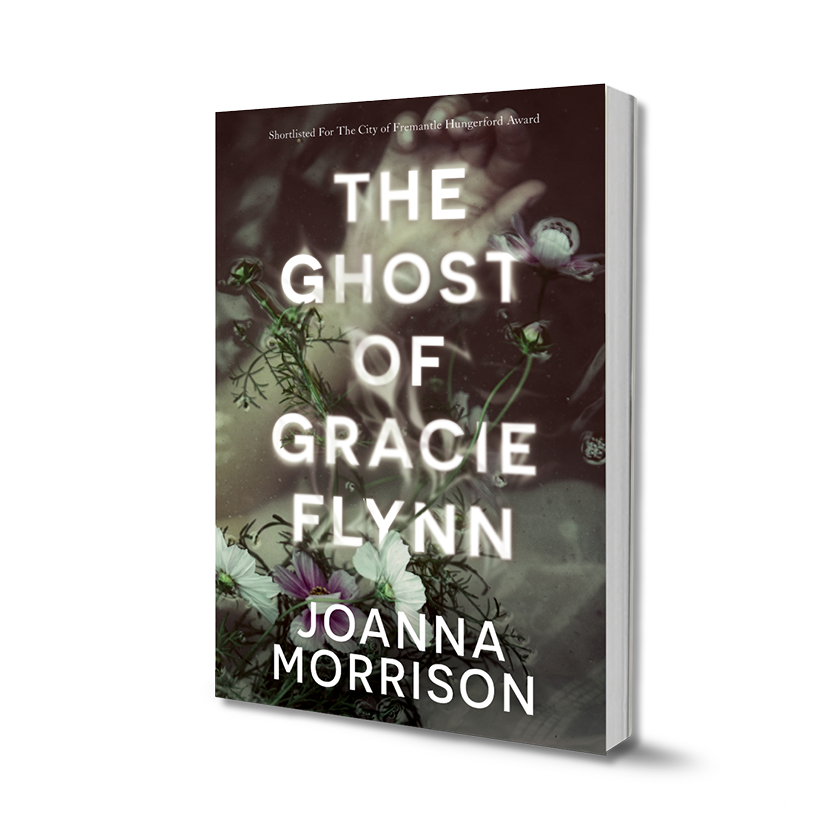



There are a few more pages to go before I can sigh with relief that I persisted and read the book. I found it challenging to read yet disturbingly beautiful, and I am so happy I did not give up. Your review describes how I experienced reading the novel. Thank you.
Really enjoyed your review Jo. I agree, it’s an important read, so powerful and heart wrenching.